It was an impressive outing for Nigeria at the recently concluded Birmingham 2022 Commonwealth Games as the Team Nigeria closed with 35 medals on the table. Not only was the country placed 7th position on the medals table, Tobi Amusan’s Gold in women’s 100m hurdles is Nigeria’s first gold in that world track and field athletics championship.
The 25-year Amusan set new records in the semi-final by finishing in 12.06 seconds to smash the world record of 12.20 seconds previously held in 2016 by Kendra Harrison, an American athlete. She also emerged the first Nigerian track and field athlete to defend her commonwealth title in 100m hurdle, before joining the women’s 4 x 100 meters relay quartet to win her second gold which incidentally is Team Nigeria’s first ever Commonwealth Games gold medal in the event.
Join our WhatsApp ChannelREAD ALSO: President Buhari To Host Team Nigeria’s Commonwealth Games Contingent September 15
Out of the 35 medals won by Nigeria, 12 of them were gold, 9 silvers and 14 bronze medals. Among the gold medalists were Tobi Amusan (100m hurdles), Ese Brume (Long Jump), Chioma Onyekwere (Discus), Miesinnei Mercy Genesis (Wrestling), Oduntayo Adekuroye (wrestling), Blessing Oborududu (wrestling), and Folashade Oluwafemiayo. Others were Rafiatu Folashade Lawal (weightlifting), Adijat Adenike Olarinoye (weightlifting), Goodness Nwachukwu (Discus para), Eucharia Njideka Iyiazi (Short put para) and Ofili, Nkwocha, and Chukwuma (4 x 100 meters relay). These athletes, notwithstanding their unique identities, represented Nigeria and not any other sectional, ethnic or religious interests.
Events have proved over the years, that sports is one of the very few events that unite Nigeria. Regardless of the tension propelled by Boko Haram, Fulani bandits and herdsmen, unknown gunmen, Oduduwa and Biafra agitations; the attitude of the President Mohammed Buhari-led administration to them and the attendant reduction of patriotic zeal in some persons, it was a proud moment for every Nigerian when the national anthem was played at the Birmingham 2022 Games.
Not just in victory, sadness also envelopes the entire country any time Nigerian teams lost a game.
A typical case, is the Super Eagles loss to Tunisia at the Cameroon 2022 CAF Africa Nations Cup. At that moment, it didn’t matter the tribe each Nigerian belonged to, nor the tribe or religion that dominated the National team.
Just likewise failure, success knows no tribe or religion. This is why we think that, in making choices, especially on matters of national importance or representation, intrusion of the age long primordial sentiments that impedes Nigeria’s progress should be avoided. In other words, the first consideration in making decisions on matters of national importance, should be the collective aspirations of the over 200 million Nigerians.
Unless the story is changed, and it’s about time, the divisiveness among the ethnic nationalities is the reason the country has not achieved reasonable progress in recent times. The fight against criminals like Fulani bandits, unknown gunmen and herdsmen terrorists and others, for example, were given ethnic coloration which is the reason the problem has defied known solutions.
Ethnicity and religion are elevated over anything and everything else in the consciousness of Nigerians, to the extent that there must be ethno-religious balancing before meaningful development is achieved.
We are appalled that a notorious terrorist declared wanted by the Federal Government was given an award in the same locality he terrorizes. More confounding was that members of the Nigerian Police were spotted at the venue – not to enforce arrest. Perhaps, this also provides explanation for the reason a political party would fake the appearance of bishops in support of a Muslim-Muslim ticket that was widely rejected by Christians. Agreed, that was contemptible and demeaning, but then, the controversy it generated was also unnecessary and distractive.
The religion of a politician shouldn’t be a concern, neither would it be important in any political equation if the country truly practised secularism as enshrined in the Constitution. The implication of elevating ethnic and religious sentiments over national interest is the cultivation of distrust and election of persons not competent enough to lead. It goes against the grain of Team Nigeria.
At no point in recent history have Nigerians been divided along ethno-religious lines in their choice of political party and candidate for election than the current campaign for the 2023 presidential election. Prime Business Africa views this as a direct repercussion of the suspicion of ethno-religious domination fuelled by the alleged Islamization agenda and land grabbing exercise under the quashed RUGA settlement by President Buhari.
Aside politics, consideration is given to region or ethnicity and religion in job creation, appointment, and education. Take for instance, the unpopular federal character system introduced in the 1979 Constitution, though a direct response to the complaints of marginalization, and the need to prevent uneven spread of opportunities among the six geopolitical zones, cannot persist in modern day Nigeria or any other society that’s inclined to speedy transformation. The system is used to determine the proportion of persons for admission, employment or federal appointment in ways that reflect ethnic, religious, linguistic, and geographical diversity of the country regardless of merit. However, rather than decrease the gaps between the ethnic groups by encouraging hard work and competition, it has widened the gaps and encouraged discrimination and mediocrity.
Under the federal character policy, admission into any of the federal government-owned universities is based on Catchment Policy (an idea that a certain percentage of admission must be reserved for the indigenes of the area in which a university is located); Backward Policy (a percentage of all admissions are reserved for candidates from states considered educationally underdeveloped or disadvantaged like Adamawa, Bauchi, Bayelsa, Benue, Borno, Cross River, Ebonyi, Gombe, Jigawa, Kaduna, Kano, Katsina, Kebbi, Kogi, Kwara, Nasarawa, Niger, Plateau, Rivers, Sokoto, Taraba, Yobe, and Zamfara States), and Quota System (a policy that provides for admission based on populations, ethnic considerations and States of Origin).
Not only is this policy obnoxious and a very poor attempt at addressing issues of educational imbalance and inequality, it negatively impacts on Nigeria’s standard of education. Nevertheless, as a policy that emphasizes the country’s diversity, the federal character arrangement can be supported if it is practised in ways that do not place qualified individuals at a disadvantage. That is, if all the candidates jostling for admission or employment qualify, but, can’t be taken due to limited slots, quota can be applied. But, in cases where opportunities are provided for or standards lowered in favour of persons under this arrangement, people will continue to agitate and complain of marginalization.
Regrettably, the later had been the practice over the years. We have observed in the past where persons cannot assume important offices as military chiefs, judges, ministers and every other federal appointment because some other persons who didn’t qualify have to be considered. Until the present administration, presidents had considered this in the appointment of service chiefs and other critical offices. Unfortunately too, the inability of the service chiefs who are mostly Muslim and Fulani to resolve the security challenge, could be a major defence for the federal character policy.
We are sure that if sentiments of the federal character that beclouds government programmes was emphasized in selecting the Team Nigeria that went for the Commonwealth Championship, Nigeria wouldn’t have been found on the medals list. Starting with the coaches, crew and the athletes, the selection of the best based on merit resulted in the success of the Team Nigeria.
If this pattern is replicated in choosing Nigeria’s next president in 2023, a vibrant leader competent enough to tackle the country’s numerous problems may emerge; someone capable of uniting the different segments of the country for a peaceful and prosperous Nigerian society.

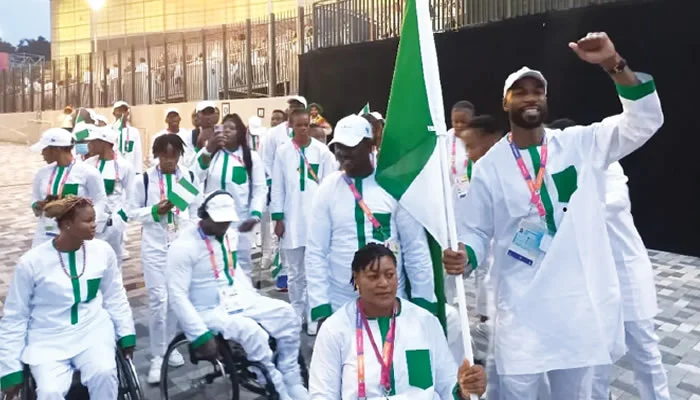



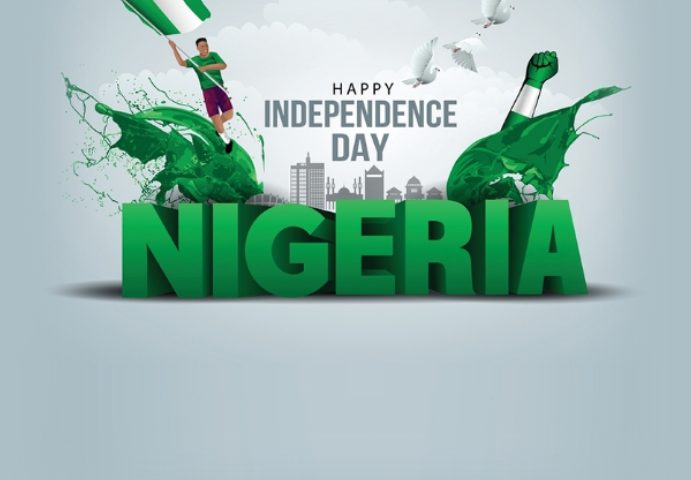

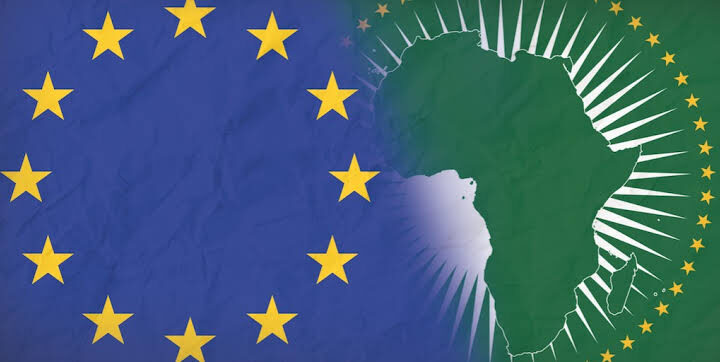








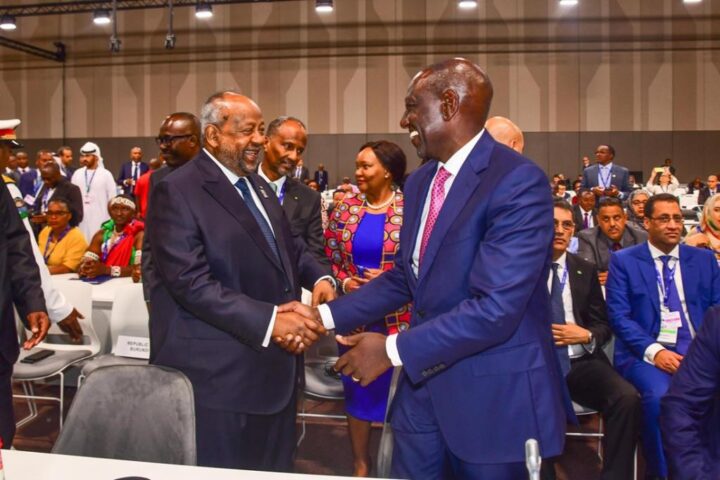
![Gender Activism An Economic Necessity In Africa [PBA Editorial]](https://www.primebusiness.africa/wp-content/uploads/2023/11/vaw-720x480.png)
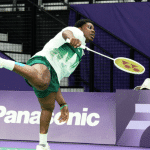
Follow Us